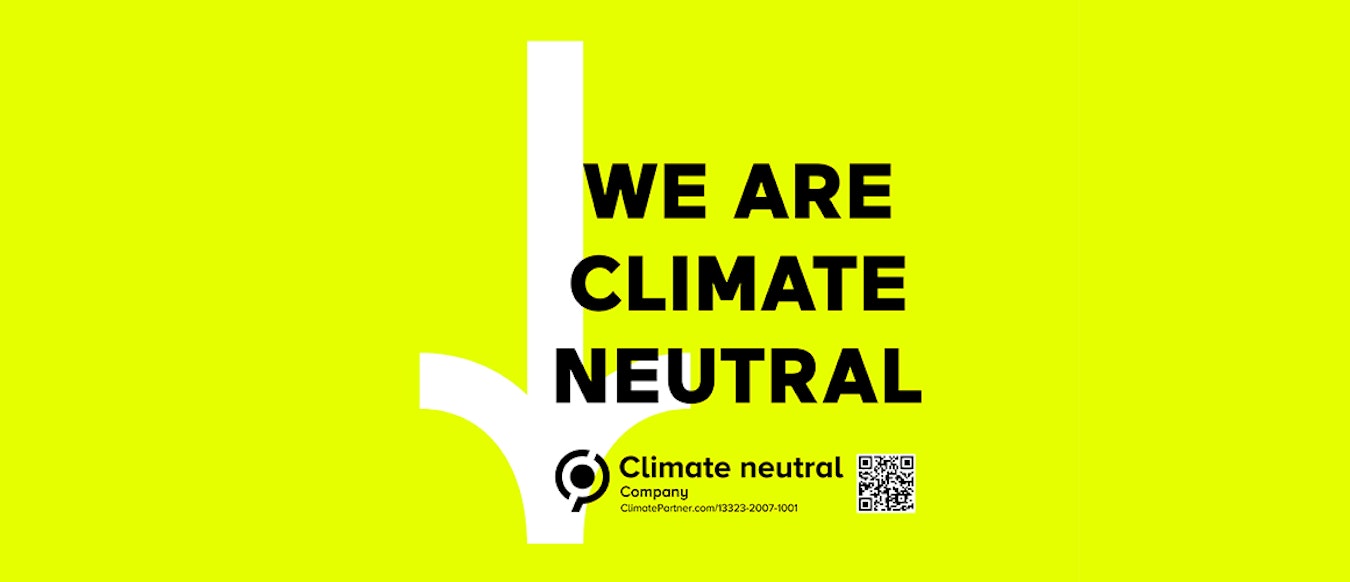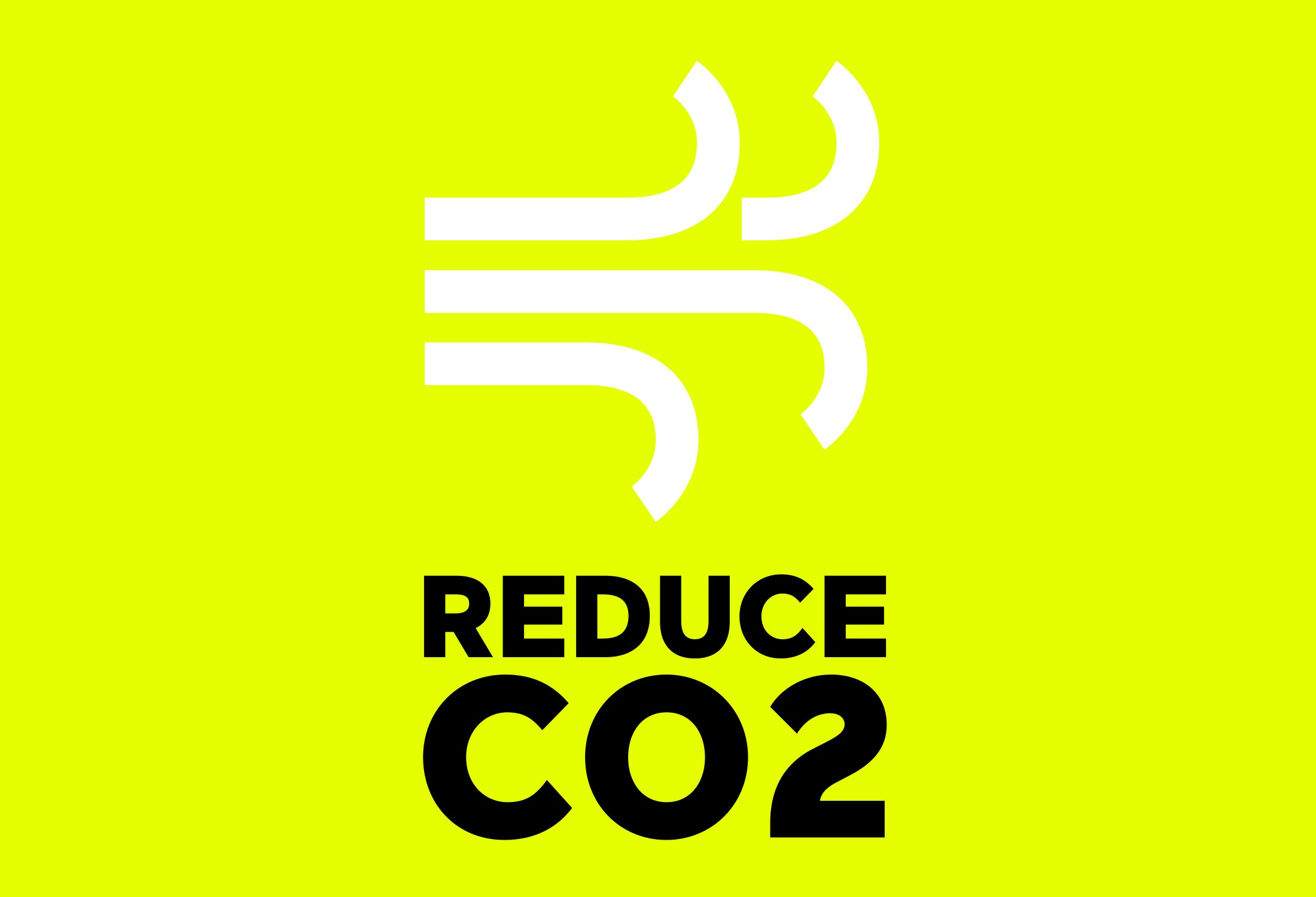What does climate-neutral actually mean?
Climate-neutral refers to businesses, processes and products whose CO2 emissions have been calculated and offset with the help of internationally recognised climate protection projects. Alongside avoidance and reduction, offsetting of CO2 emissions is a further important step towards holistic climate protection. And don’t get confused: climate-neutral does not mean CO₂ free. There are practically no CO₂-free products or CO₂-free services because this would mean that no CO₂ emissions were produced during their manufacture or provision. So they don’t exist with regard to raw materials, logistics or packaging.
In 2019 our CO₂ footprint was 4,658 tons
Sustainability and eco-aware business have always been part of our corporate philosophy. For us, the calculation of our Corporate Carbon Footprint (CO₂ footprint for the entire company) represents an important building-block in the development of a progressive climate protection strategy. That is why we decided – working with ClimatePartner – to make all of our operations, inclusive of all products we manufacture, climate-neutral. All greenhouse gas emissions produced by our activities are offset by investments in the forest protection climate conservation project in Portel, Brazil.
The project
Portel is in the Amazon region of Brazil. The land is fertile, flat and easily accessible, and there are several ports nearby – offering perfect conditions for soya cultivation. In Brazil, 25 per cent more rainforest was destroyed than in the previous year from January to June 2020 alone – the highest figure since records began. This is where the forest protection project in Portel kicks in. Its aim is to acquire official land rights to their native area for the “ribeirinhos” – those living near the Amazon River – and in this way protect the rainforest from deforestation and soya cultivation by agri-giants. At the same time, this helps to secure the livelihoods of the locals who are among the poorest people in Brazil. Read all about the project here: https://fpm.climatepartner.com/tracking/project/details/13323-2007-1001/1086/de
How does protecting forests in Portel, Brazil contribute to climate protection?
Forests are incredibly important CO₂ stores, they provide a livelihood for humans, and they are home to a vast array of animal species. What forest protection projects aim to do is ensure that forests are preserved for the long term. Apart from that, projects like this one offer alternative sources of income and education opportunities for the local population.
Why is RINGANA offsetting its unavoidable CO₂ emissions through a climate protection project in Brazil?
1. Greenhouse gases such as CO₂ are distributed equally in the atmosphere which means that the concentration of greenhouse gases is roughly similarly all over the planet. That is why it makes no difference with regard to global greenhouse gas concentration and the greenhouse effect, where on Earth the emissions were caused or avoided. Emissions that cannot be avoided locally can therefore be offset through climate protection projects somewhere entirely different.
2. What is clear is that the industrialised nations are the main cause of climate change, but it is the people living in developing countries who suffer the most from the consequences. That means it is only fair if the measures are taken in those countries.
3. CO₂ reduction is not enough by a long chalk. What’s needed is the massive growth of projects for the additional reduction of greenhouse gases – climate protection projects, in other words.
4. Forests play a central role in our ecosystem because they absorb greenhouse gases. The Amazon rainforest is the biggest of its kind on Earth. It is particularly under threat from deforestation. We want to protect it.
The “climate-neutral” label
Have you already noticed the new label on our invoices? The “climate-neutral” label ensures complete transparency: by inputting the ID number on www.climatepartner.com or by scanning the printed QR code, you can see how much CO₂ has been offset, and which climate protection project was supported.




 Zur Übersicht
Zur Übersicht